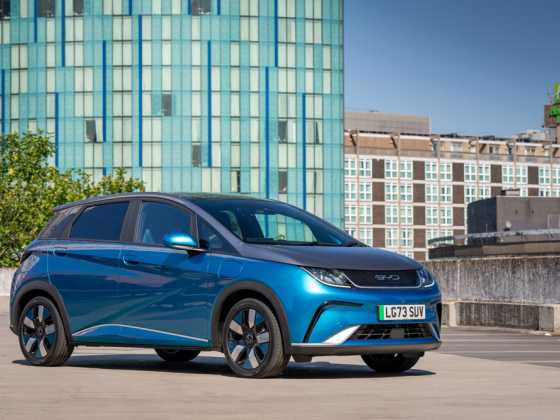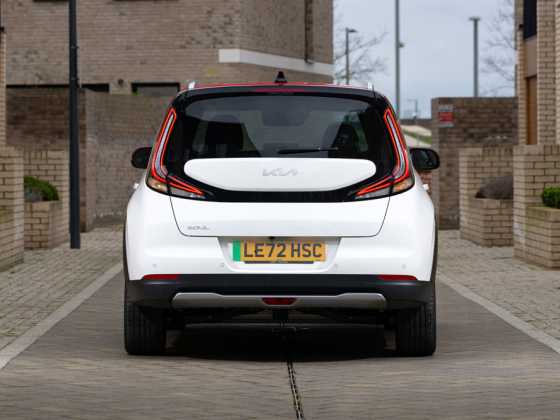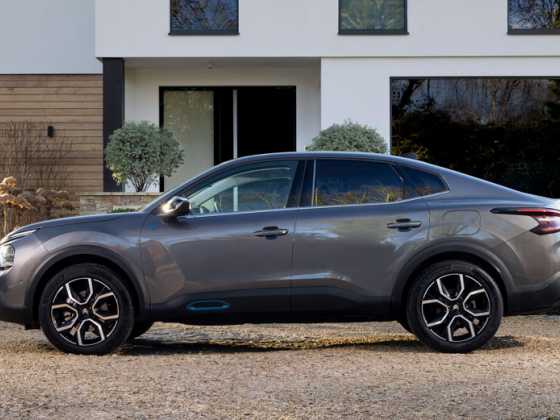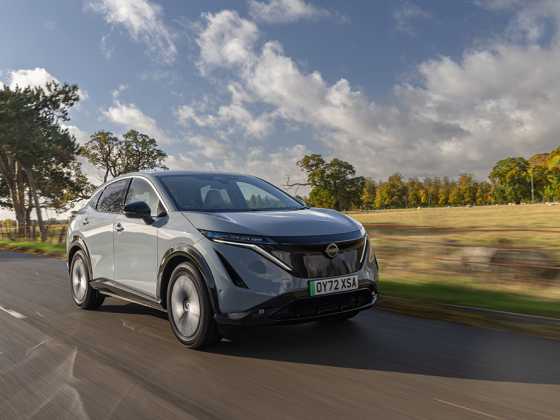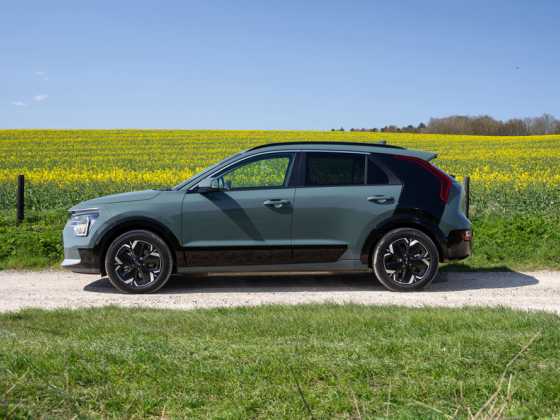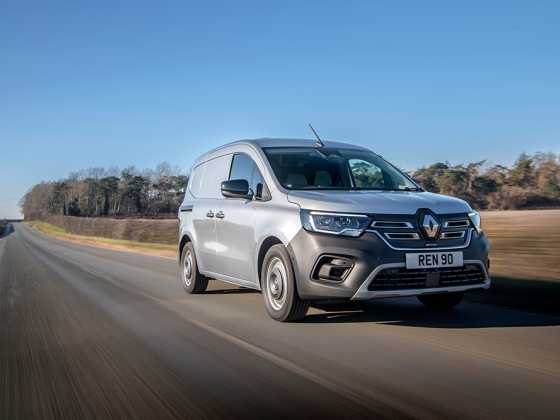Genesis GV60
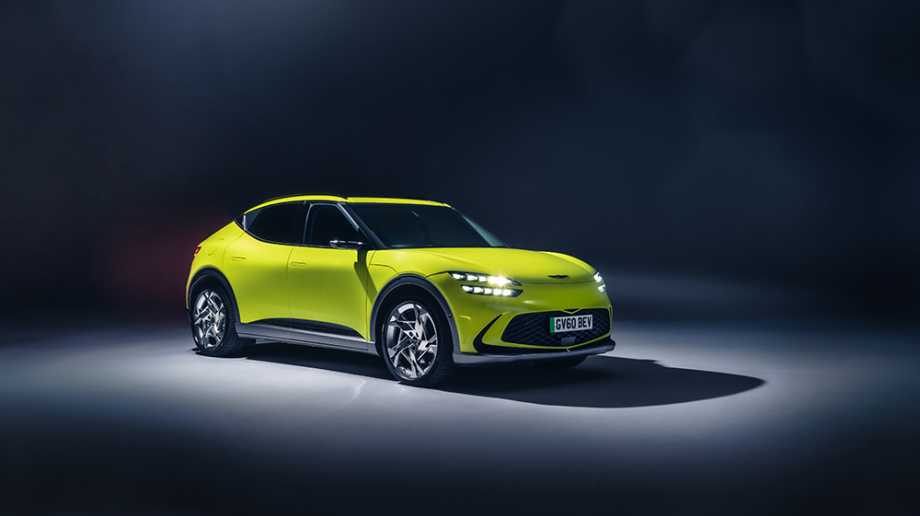
Premium car maker Genesis has arrived in Europe and sets out its ground-up electric vehicle stall with the GV60. Richard Gooding finds the newcomer offers convincing comfort, luxury and technology
What is it?
Originally the name of a luxurious Hyundai model launched in 2008, the South Korean Genesis brand evolved into a standalone marque under the Hyundai Motor Group in 2015. Its first car, the G90, arrived in 2017. Two further models followed, with the brand’s first European cars arriving in 2021. Genesis’ first dedicated electric car, the GV60, as tested here, arrived in the UK during 2022.
Joining the all-electric, but adapted ICE models, Electrified G80 saloon and Electrified GV70 SUV, the GV60 takes advantage of the Hyundai Motor Group’s E-GMP all-electric architecture. Featuring 400V and 800V electrical systems for faster charging and bi-directional power capability, the modular platform also underpins the Hyundai Ioniq 5 and the Kia EV6. However, the GV60 is the most luxurious of the family and is positioned as such, with premium on-board technology and plusher fixtures and fittings.
In keeping with this high-grade image, Genesis has a commitment to hospitality and service, seeking to build relationships with customers, and from 2025, all of the brand’s new vehicles will be all-electric as part of the company’s goal to become carbon net zero by 2035.
What range does it have?
The Genesis GV60 is available in three trim levels, with each model grade having a unique powertrain. All are mated to a single-speed automatic gearbox, and use the same 77.4kWh (gross capacity) lithium-ion battery. The entry rear-wheel drive GV60 Premium has a single 226bhp motor and an official WLTP-rated range of up to 321 miles.
The mid-specification GV60 Sport uses a dual motor set-up, and is all-wheel drive. Power is 317bhp, with a range of up to 292 miles, while the range-topping GV60 Sport Plus can officially travel distances of up to 290 miles, despite the massive 483bhp from its dual motor powertrain. Over 546 miles in winter conditions with our Sport Plus-spec test car we averaged 2.6m/kWh, and 211 miles on a full charge.
Away from a charging station, the GV60’s ‘i-Pedal’ (Intelligent Pedal) function lets you drive the car with just one pedal. It really works, too, improving efficiency, by maximizing the amount of energy which is harvested when slowing down, feeding it back into the battery. Three levels of brake regeneration are also available, controlled by nicely adjustable and positive-feeling steering wheel-mounted paddle shifters.
All-wheel drive models are fitted with the Genesis Disconnector Actuator System (DAS), which smoothly connects or disconnects the front motor from the drive wheels. The DAS works with a Smart Regeneration System 2.0 system, which automatically adjusts the car’s regenerative braking capability depending on traffic data and navigation map information.
How long does it take to charge?
Using E-GMP’s 400V or 800V charging technology, when plugged into an ultra-rapid 240kW charging station, the GV60’s battery can be refilled from 10 to 80 per cent of its capacity in just 18 minutes. A 50kW connection will add 80 per cent capacity in a little over an hour, while an empty to full charge will take around 11 hours on a 7kW supply.
Like its Kia and Hyundai cousins, the Genesis GV60 also features a Vehicle to Load (V2L) function. This £880 option allows the car to be used as a mobile power source thanks to its 3.6kW power output.
How does it drive?
The GV60 may be Genesis’ smallest vehicle, but it shares the same level of avant-garde design as the brand’s larger models. A compact SUV in silhouette, with voluptuous curves and distinctive light bars front and rear, the GV60 gets noticed and has a sense of theatre, and that’s all before you’ve stepped inside. Open the doors by the pop-out handles, and you’re welcomed by an ambience of luxury and technology.
Centre stage is the ‘Crystal Sphere’, a glass globe which is essentially only a gear selector, but it glows and rotates to reveal the controls when you turn the car on. A little bit of theatre, it has a handy purpose, too; the sphere rotates and hides the gear selector when the car is turned off, so you know that it has no power. The 12.3-inch infotainment system and adjoining driving instrument display hints at the on-board technology on offer, and the metallic finish on the door handles, climate controls and centre console is smart and futuristic, adding to the impression of quality.
Despite weighing around 2,000kg, the Genesis GV60 feels relatively agile on the move with plenty of grip, and its size and weighty steering means it’s easy to place on the road. It’s an enjoyable, comfortable, and relaxing car to drive, and also a very quiet one, thanks to the use of acoustic glass in the windscreen and front doors and foam inserts in the tyres that are claimed to help reduce the amount of road noise. The Sport Plus dual-motor powertrain on test here serves up 483bhp, which is almost too much, as the car surges ahead when you press the accelerator – on a winding road you’re at the next corner almost before you realise it. ‘Eco Plus’, ‘Normal’ and ‘Sport’ driving modes allow you to tailor the driving experience to exactly how you want it.
What does it cost?
Genesis has kept the GV60 model family simple, but as you’d expect from a premium-position product, it costs more than both its Hyundai and Kia relatives. However, neither – with the exception of the 577bhp Kia EV6 GT – offer the same amount of power as the GV60 Sport Plus. The GV60 also features a more sumptuous and technology filled interior.
The Premium is the lowest-priced GV60 at £53,905. Standard equipment includes 19-inch alloy wheels, electrically hidden door handles, auto-dimming rear-view mirror, front and rear parking sensors, heated steering wheel, heated front and rear seats, powered and ventilated front seats, quad-LED headlamps with high beam assist, rear parking camera, smart cruise control, wireless smartphone charger, 12.3-inch infotainment system with integrated navigation, Apple CarPlay, Android Auto, voice recognition, and DAB radio, and a 12.3-inch digital instrument cluster.
Moving up to the £58,362 Sport adds 20-inch alloy wheels, while the £67,505 Sport Plus gains 21-inch alloy wheels, velour-trimmed headlining, sun visors and door trim, metal ‘Sports’ pedals, Nappa leather trim, electronically controlled suspension, and an electronic limited slip differential. Of course, the price difference on the Sport and Sport Plus over the Premium also includes the addition of the all-wheel drive powertrain.
A variety of optional packages with features including a Bang & Olufsen audio system, digital side mirrors, and a panoramic sunroof mean you can tailor the GV60 to a more exacting specification. A five-year care plan is also included in the price of every GV60, which includes free pick-up and collection, a courtesy car, as well as over-the-air updates. Dedicated Genesis Personal Assistants also support drivers through their ownership journey.
How much does it cost to tax?
Genesis’ smallest electric vehicle is exempt from UK VED in the first year of registration. After that, at current VED rates, the GV60 incurs no charge. Benefit in Kind (BIK) tax for 2023-2024 is two per cent.
Why does my fleet need one?
Striking looks, a sumptuous interior and a high level of on-board technology are reasons enough to add a GV60 to a private hire fleet, or to choose one from the fleet company car list, but the fact that the smallest Genesis model also drives extremely well makes it a compelling and interesting choice.
Add in the progressive customer service commitment and the fact that the Genesis brand itself is backed by one of the most currently innovative automotive groups when it comes to electric vehicle and charging technology, and the GV60 becomes hard to ignore.


